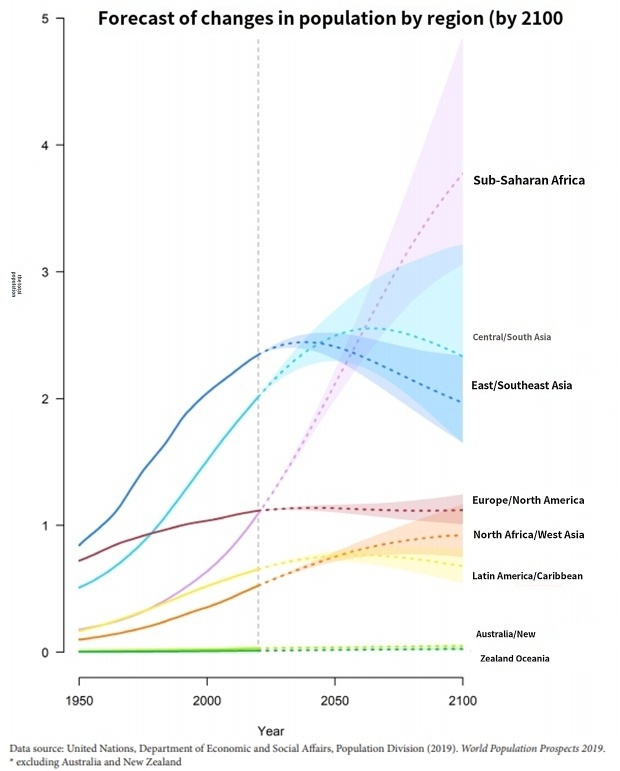
In the future, the population is expected to decrease as fertility rates fall in developed countries, but in Africa, the population will increase and one in four people around the world will become African by 2050.The New York Times reported on the 28th (local time) that Africa’s population will double to 2.5 billion over the next 25 years, which will also bring about a major change in relations with the world.In 1950, the population of Africa was only 8 percent of the world.But 100 years later, by 2050, it is expected to account for a quarter of the world’s human population, according to the United Nations projection.In particular, with the young population expected to increase significantly, Africans are expected to account for at least a third of the world’s young people aged 15 to 24 in 25 years.Even now, the median age on the African continent is only 19.In contrast, India, the world’s most populous country, has a median age of 28, while the U.S. and China have 38 years each.The New York Times predicts that there will be a huge impact from the large youth population, but it is still uncertain and that the impact will vary across the continent.In the next 10 years, Africa’s 15- to 65-year-old production population is expected to reach 1 billion, surpassing India and China to have the largest labor force in the world.The chronic unemployment problem, a problem that Africa is already experiencing, is expected to emerge significantly.Africa’s unemployment problem is a global problem, said Aubrey Khrubi, the author of “Next Africa,” adding, “After climate change, Africa’s job crisis will be the essential problem of our time.”In the 1970s and 1980s, Korea, China, and Japan solved this problem with industrialization, but Africa is in a poor situation for industrialization, the NYT noted.

Most African countries, except for a few, have failed to industrialize, and Africa’s share of global manufacturing is now smaller than in the 1980s.
The infrastructure, which is so poor that 600 million out of 1 billion people suffer from electricity shortages, is also an obstacle. Referring to Korea in the poor 1960s, he said that Korea’s becoming one of the economic giants shows that success can happen in unexpected countries.”With time and effort, amazing changes are possible,” he said, adding that the young population played a big role in Korea’s success.
EJ SONG
US ASIA JOURNAL



